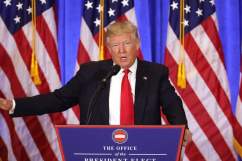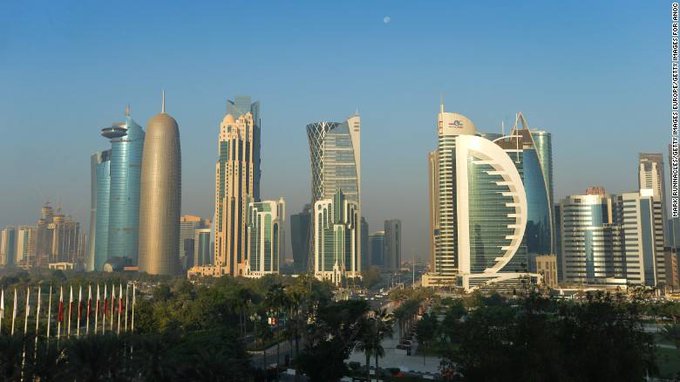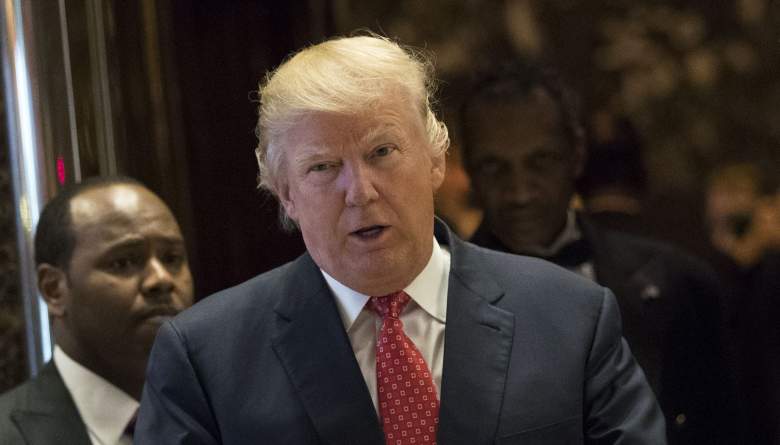
President Donald Trump (Getty)
On Tuesday morning President Trump took a break from tweeting about the media to address the ongoing situation between Qatar and Saudi Arabia.
Trump appearing to take credit for Saudi Arabia’s decision to cut ties with their neighbor Qatar isn’t all that surprising. However, the president giving the impression that the U.S. is abandoning the U.S./Qatar alliance, an alliance that has been in place since the 1990’s, does come with an unsettling rippling effect. It also poses some interesting questions that need to be answered.
What’s Going on With Saudi Arabia and Qatar?
Let’s start with geography. Saudi Arabia is pretty big. Qatar is pretty small. The countries are neighbors, with Saudi Arabia being the only country that Qatar shares a land border with. For years Emir Khalifa bin Hamad Al Thani had employed a tactic best described as “whatever you want to do is cool with me.” He was fine with the Saudis holding sway over Qatar, a country the Saudis considered less of a country and more of a province under their control.
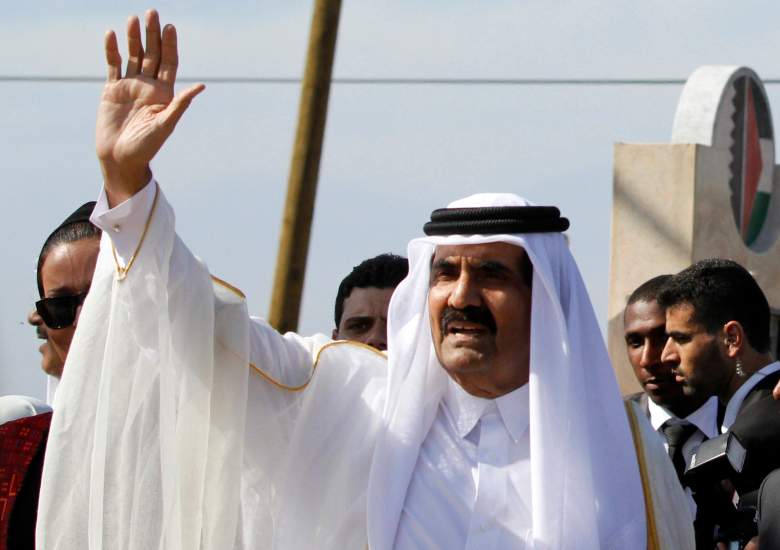
The Emir of Qatar Sheikh Hamad bin Khalifa al-Thani in 2013 (Getty)
This policy lasted until 1995. In 1995 the Emir was overthrown by his son Hamad bin Khalifa al-Thani. The new Emir had no desire to be pushed around by the Saudis and pledged to make Qatar an equal to its neighbor, rather than a sidekick it was able to push around. Khalifa began reaching out to other countries, looking to make in roads with them and forge alliances. Trade with Israel? Let’s go. Ties with Iran? Sure, why not. An American airbase? Sounds good. In addition, Qatar started to become a safe haven for Islamist groups. These were not just considered bold moves by the Saudis, but troubling ones.
Friction only continued as the Arab Spring tore through the region in 2011. A leader would be ousted or toppled and Qatar and Saudi Arabia would race to the scene, looking to be the first one on-site to lend a helping hand. Competition is never a good thing to have between neighbors. Things inevitably get messy, which they continued to do in the following years. A turning point was in 2013. Qatar’s allies lost power just as other Gulf countries rallied around Saudi Arabia. For Khalifa, it seemed like a good time to step down, as he transferred power over to his young, inexperienced son.
What Happened on Monday?
On Monday, two decades of unease and tension reached the breaking point. Saudi Arabia, along with Egypt, the United Arab Emirates, Bahrain and Yemen announced that they were cutting ties with their neighbor. Qatar was on the outs. They claimed “the energy rich monarchy is undermining stability in the region by supporting the Iran-aligned militant groups.” Qataris living in the any of the countries that were de-friending Qatar were given two weeks to leave town.
Did Any Other U.S. Officials Comment on the Situation?
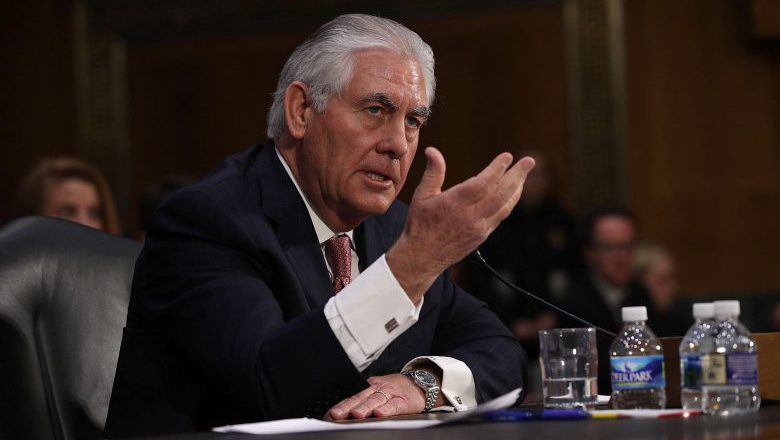
Sec. of State Rex Tillerson (Getty)
Prior to his tweets/statements, Secretary of State Rex Tillerson encouraged everyone involved to “sit down together and address these differences,” adding that “if there’s any role we can play in terms of helping them address those – we think it is important that the GCC (Gulf Cooperation Council) remains unified.”
Tillerson gets points for diplomacy, but it’s likely all in vain, as Trump’s tweets seemed to indicate that regardless of any further talking, the U.S. was siding with the Saudis here. But this is easier said than done.
What Does the U.S./Qatar Alliance Entail?
The U.S. and Qatar’s two decade long alliance consists largely of the U.S. using the al-Udeid Air Base and stationing close to 10,000 American troops in Qatar.
So What Does This Mean Going Forward?
Logistics aside, there is definitely cause for concern in terms of optics. Trump has already raised eyebrows among most of the U.S. allies already, allies who are openly questioning whether or not they can even trust the U.S. anymore. Now, in addition to that, they have to worry about Trump abandoning them all together and doing so at both a moment’s notice and possibly even worst, at the urging of an ally they may have some beef with.
This idea that now that he’s president, Trump must realize his words have consequences is starting to become less of an idea and more of a concerning reality. As a private citizen, Trump could spout off about a variety of subjects on Twitter (i.e. Kristen Stewart’s love life) and do so with little repercussion. Now he’s president though and the opposite is now true.
As Max Fisher of The New York Times pointed out following Trump’s tweets, U.S. allies are going to now be forced to monitor the president’s Twitter feed closely, seeing if they might be the next ally to get tossed aside.
Yes, Qatar was getting into bed with some troubling characters and it was going to warrant discussion sooner rather than later. In addition, it’s not as if Saudi Arabia is completely innocent when it comes to funding and supporting terrorists. That too is something that deserves to be talked about. But instead of talking about any of these issues, Trump elected to move on in what appears to be a rash decision and because he was encouraged to do so by a fellow ally.
Tillerson can be as diplomatic as he wants, but if his boss is doing one thing while he does another, it’s going to put both the U.S. and its allies in precarious situations going forward.
